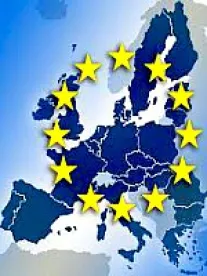In the European Union (EU), unlike the United States, the availability of private antitrust actions has been extremely limited to date. Although the number of such actions has increased over the past decade, the institution of private damages antitrust actions remains underdeveloped. In the EU, the exercise of an individual right to compensation is governed by national rules, which often make it difficult for parties adversely affected by cartels to bring actions. Thus, these injured parties often go uncompensated for the harm suffered. However, some recent developments, on the national (Dutch) and European level might help clear the way for follow-on claims compensating victims of EU-wide cartels.
Corporate entities involved in antitrust investigations at this point should consider the potential for follow-on claims. A recent judgment of the District Court in The Hague, the Netherlands, is particularly relevant for current and future damage actions within the EU because the court ruled in favor of private plaintiffs on a number of procedural arguments that cartel members regularly raise in the context of private damage actions. This decision’s relevance is amplified by the growing interest in European-wide private damage actions, most clearly demonstrated by the publication of a number of proposals by the EU Commission of regarding private damages actions for competition law infringements.
The Netherlands Follow-On Claims Experience
On May 1, 2013, the District Court in The Hague, ruled on various preliminary defenses raised by the defendants in an antitrust follow-on damages litigation. The case was brought in 2011 by the CDC group against four members of the alleged European paraffin wax cartel (the Cartel). The Cartel, which included 10 companies, controlled about 75 percent of the European market in paraffin wax. The wax is used in a wide range of products, including tires, candles and chewing gum. Purchasers of paraffin wax allegedly incurred damages caused by significant overcharges resulting from the Cartel. In the European Commission’s decision of October 1, 2008, it found that the Cartels had fixed prices for paraffin wax, allocated markets and customers, and engaged in the exchange of confidential information, all in breach of the EU competition laws. Relying on this decision, eight of the purchasers, mostly candle producers, assigned their overcharge damage claims against the four defendants to the CDC for enforcement.
The Hague District Court confirmed that plaintiffs may collectively bring suit in the jurisdiction of the corporate seat of any of the companies determined by the commission to have been members of a cartel. The District Court ruled that it had jurisdiction over all of the defendants. The "anchor defendant," Shell Petroleum NV, is established in the Netherlands. Thus, the court found that it had jurisdiction over the other defendants as well. A sufficiently close relationship between the claims against the anchor defendant and the other defendants permitted the court to jointly assess the claims against all the defendants collectively.
The court rejected the argument of one of the defendants, Total, that a choice-of-forum clause would apply. Total’s German subsidiaries included a choice of forum clause in its contracts with it customers. The Hague District Court ruled that this choice of forum clause did not apply to private antitrust litigation against the parent company, Total. Accordingly, the suit, including Total as a defendant, is proceeding.
Harmonization across the European Union
In addition to the Dutch development favorable to follow-on claimants, on June 11, 2013, the European Commission published two important measures regarding private damages actions. These include a directive on damage claims and a recommendation on collective redress. Although it is as of yet unclear whether these measures will be implemented, if implemented, they are likely to improve the position of claimants in competition follow-on actions within the European Union.
The proposed directive contains (minimum) harmonization of damages actions regulation. Currently, the national regimes in the EU for private enforcement of competition law are diverse. The commission even refers to a "total underdevelopment" of regimes permitting private enforcement of EU competition law. Because of this claimed "total underdevelopment," the number of successful follow-on claims to date remains small. The Paraffin wax ruling confirms that the Netherlands is one of the most active jurisdictions in Europe for parties seeking compensation for cartel damages. In the Netherlands, cartel members apparently will be less likely to prevent or postpone follow-on damages suits through procedural arguments. Whether the proposed EU Commission Directive will be implemented remains to be seen, as the Commission arguably is encroaching on member states sovereignty. However, at a minimum, the recent Dutch Court ruling may set a precedent not only for acceptable private damages actions in the Netherlands, but within the entire European Union.



 />i
/>i
